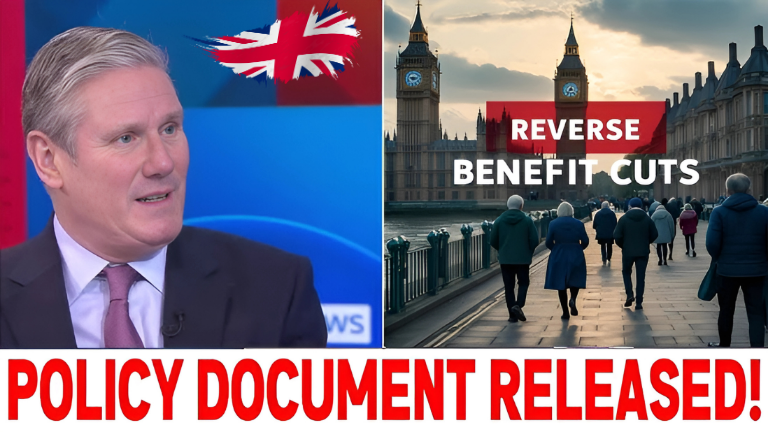June 2025 marks a crucial turning point for millions of benefit claimants across the UK. Major DWP changes are rolling out that will affect how much money you receive and when you get it.
More than 20 million people rely on government support to cover basic living costs. With new reforms taking effect, understanding these changes has become essential for financial planning.
Key Changes Happening Right Now
1. Universal Credit Payment Delays for Some Claimants
Many Universal Credit recipients still haven’t received their 1.7% increase that started in April 2025. This delay affects people whose assessment periods began before April 7th.
The new rates only apply to assessment periods starting after this date. If your cycle started earlier, you’ll finally see the increased amount in June when your next assessment period completes.
2. New Universal Credit Rates Taking Effect
Single people under 25 will now receive £316.98 monthly. Those aged 25 and over get £400.14 per month as their standard allowance.
Joint claimants under 25 receive £497.55 monthly, while couples with one or both partners over 25 get £628.10 each month.
Major Welfare System Overhaul
3. PIP Eligibility Becoming Stricter
Personal Independence Payment rules are tightening significantly. The government expects 370,000 current recipients to lose their entitlement during award reviews.
An additional 430,000 future claimants won’t qualify under the new criteria. This represents an average loss of £4,500 annually for affected individuals.
4. New PIP Scoring Requirements
A minimum of 4 points in at least one daily living activity will now be required. This additional requirement aims to focus support on those with the highest needs.
Current PIP recipients will only face these changes when their existing awards come up for review. The changes won’t affect ongoing awards immediately.
5. Universal Credit Health Element Changes
The health element for existing Universal Credit claimants will be frozen at £97 per week until 2029/30. New claimants will receive a reduced rate of £50 per week from 2026/27.
About 2.25 million current recipients will be impacted by this freeze. However, 3.9 million households not on the health element will benefit from increased standard allowances.
Payment Processing and Timing Updates
6. BACS Payment System Changes
Most benefit payments arrive between midnight and early morning through the Bankers’ Automated Clearing Services (BACS) system. Payment times can vary depending on your bank’s processing schedule.
Weekend and bank holiday payments are automatically moved to the preceding working day. This prevents delays and ensures consistent income flow.
7. Fair Repayment Rate Improvements
Universal Credit deductions have been reduced from 25% to 15% of the standard allowance from April 2025. This change benefits 1.2 million households by an average of £420 annually.
Third-party deductions are now capped at 5% of the standard allowance. This covers debts like energy bills, council tax, and rent arrears.
Employment Support Measures
8. Work Capability Assessment Scrapping
The complex Work Capability Assessment will be completely scrapped by 2028. This time-consuming process has been widely criticized for its impact on claimants’ mental health.
Resources previously used for these assessments will be redirected toward employment support and training programs for young people.
9. Right to Try Initiative
A new “right to try” policy allows disabled benefit claimants to attempt employment without risking their benefit entitlements. This removes the fear of losing support when testing work capabilities.
1,000 additional work coaches are being deployed to jobcentres across the UK. These specialists will help sick and disabled people find suitable employment opportunities.
10. State Pension Increases
State pension payments increased by 4.1% in April 2025 under the triple lock system. The full new flat-rate pension is now £230.25 weekly for those reaching pension age after April 2016.
Pension payment dates depend on your National Insurance number’s final digit. Payments arrive every four weeks on your designated day.
Support and Alternative Help
11. Cost of Living Support Availability
No additional cost of living payments are planned for 2025. The last payment reached bank accounts in February 2024.
Alternative support options remain available through the Warm Home Discount, affordable warmth schemes, and local council assistance programs.
12. Unclaimed Benefits Reminder
Nearly £23 billion in benefits goes unclaimed annually. Many people don’t realize they’re eligible for additional support beyond their current entitlements.
Two-thirds of UK adults find benefit eligibility confusing. Regular checks using government benefit calculators can reveal missed opportunities for financial assistance.
What to Do If Payments Are Missing
First, check your bank account the day after your expected payment date. Automated systems sometimes cause minor delays.
For Universal Credit issues, use your online account or call 0800 328 5644. PIP payment problems should be reported to 0800 121 4433.
Contact HMRC directly for tax credit or child benefit payment queries. Each benefit has specific helplines for faster resolution.
Preparing for Future Changes
Review your benefit awards regularly to understand how upcoming changes might affect you. Assessment periods and payment dates vary by benefit type.
Keep documentation updated and respond promptly to any DWP correspondence. Missing deadlines can result in payment delays or benefit suspensions.
Consider employment support if you’re able to work. New programs offer enhanced assistance without jeopardizing existing benefit entitlements.
Impact on Household Budgets
These changes represent the most significant welfare reform in a generation. While some people will receive more support, others face reduced payments.
Budget planning becomes crucial as payment amounts and timing shift. Understanding your specific situation helps maintain financial stability during the transition period.
The government estimates these reforms will save over £5 billion annually by 2029/30. However, disability charities warn about increased poverty among vulnerable groups.
Frequently Asked Questions
Q: When will I see my Universal Credit increase? A: If you haven’t received it yet, the increase should appear in June when your next assessment period starting after April 7th completes.
Q: Will existing PIP recipients lose their payments immediately? A: No, changes only apply when your current award comes up for review, typically every 3 years.
Q: What happens if my benefit payment is late? A: Wait until the next working day, then contact the relevant helpline using your online account or phone support.
Q: Are there other forms of financial help available? A: Yes, check the government’s Help for Households portal and local council support schemes for additional assistance.
Q: How do I know if I’m eligible for more benefits? A: Use the government’s online benefit calculator regularly, as eligibility can change with circumstances.
Q: Will the health element freeze affect existing claimants immediately? A: No, the freeze begins in 2026/27, and existing claimants keep their current rate until 2029/30.
Q: What is the “right to try” policy? A: It allows benefit claimants to attempt work without losing their entitlements if the employment doesn’t become long-term.
Q: How much will the standard Universal Credit allowance increase? A: It will rise by £775 annually by 2029/30 to provide better support for those actively seeking work.
Q: When do PIP changes take effect? A: New eligibility criteria begin in November 2026, but only apply during award reviews.
Q: Where can I get help understanding these changes? A: Contact your local Citizens Advice, visit the DWP website, or speak with specialized benefit advisers in your area.

